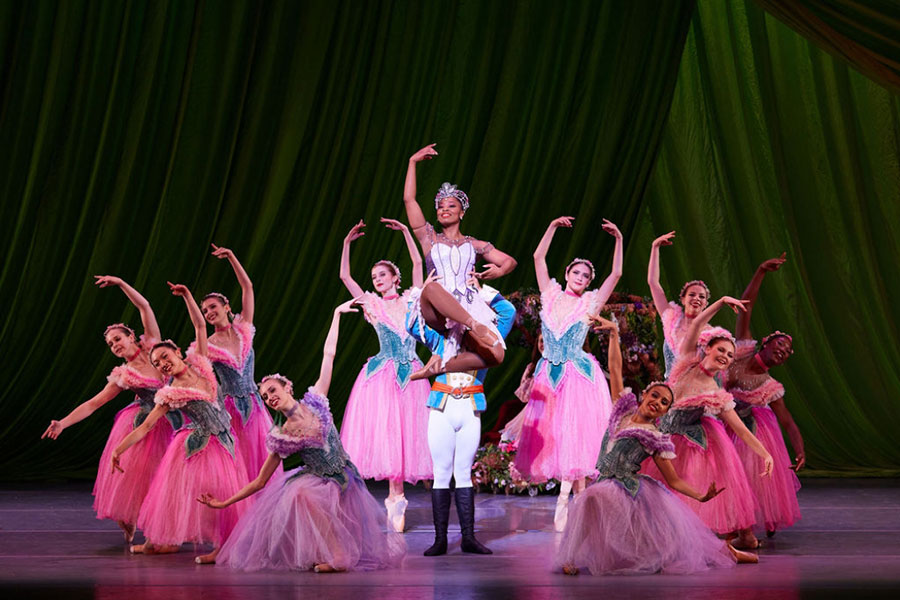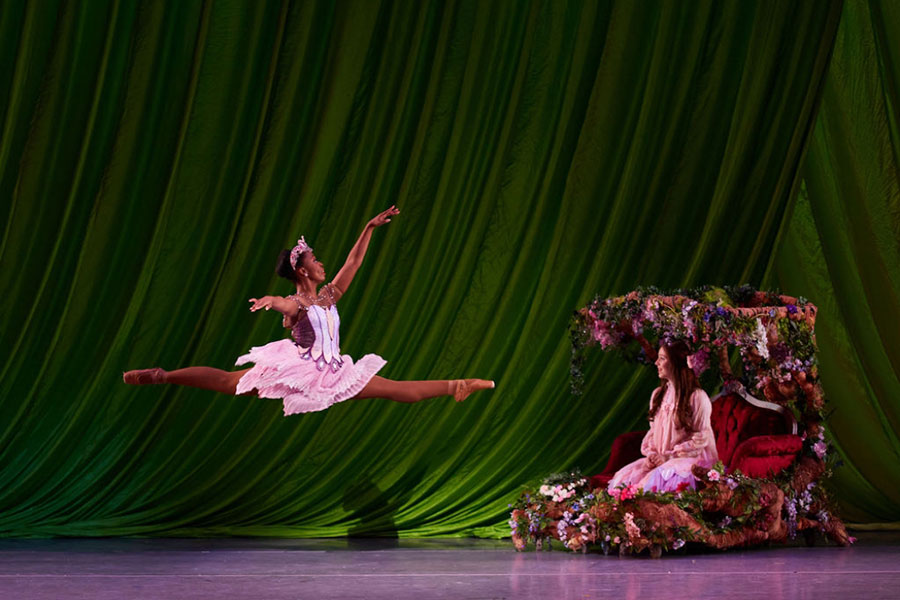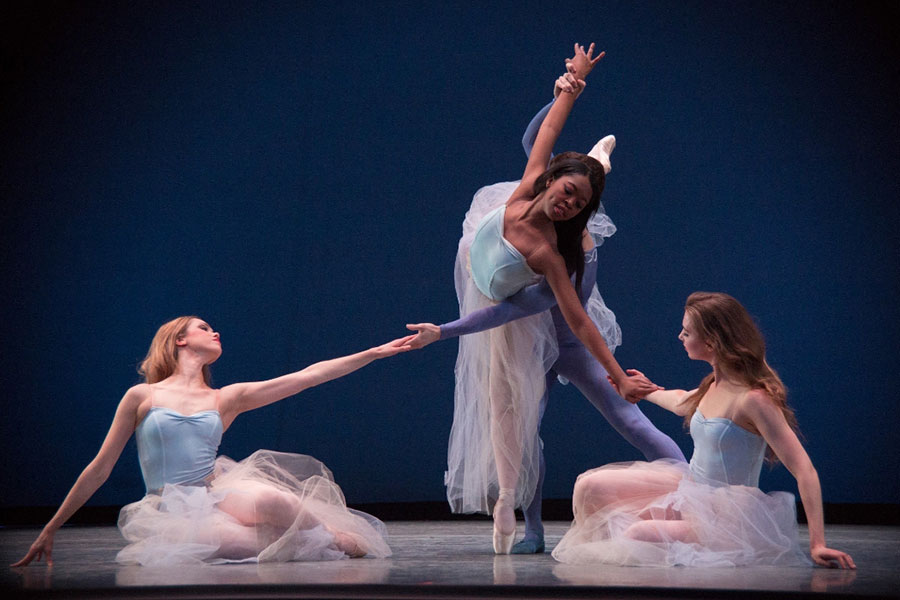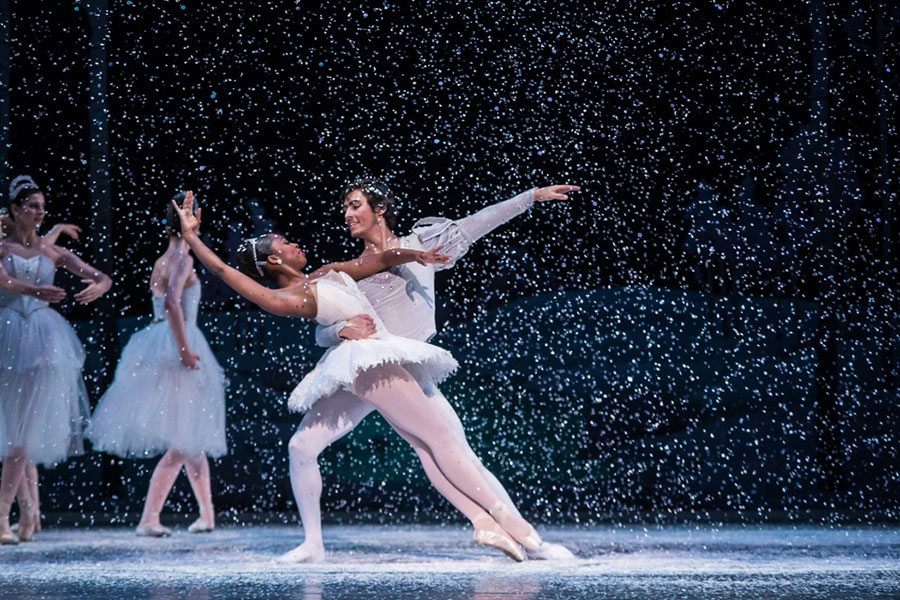Imani Sailers: Destined to Dance

Imani Sailers’ mother couldn’t help but notice that her daughter was enamored with the costumes and glitter at her cousin’s dance recitals. The twirling and turns made 3-year-old Sailers, BS’17, squirm excitedly in her seat, so her mother soon enrolled her at the Chicago Multicultural Dance Center.
In that studio, located on the south side of Chicago, Sailers was immersed in a community of dancers and faculty with brown skin and textured hair—just like her.
“It was a great dance home for me and my sister (Broadway dancer Akilah Sailers). We got to share this art form with kids our ages, from our neighborhood, with similar cultural backgrounds,” says Sailers.

That sense of belonging shifted at age 13 when she began spending summers at dance conservatories.
“I was the only Black girl in the room, and that was not normal for me,” she says. “When I started to go elsewhere, I was like, ‘I think there's a need [for Black dancers] because I don't see me.’"
Today, Sailers is still in the minority amongst the company dancers at the Nashville Ballet—the largest professional dance company in Tennessee—which she joined in 2017; however, the company has taken great strides to becoming more inclusive in production selection and costuming.
When Sailers debuted as Dew Drop in The Nutcracker (the only Black dancer in that role at the time) costumers designed removable mesh panels so they could swap the colors to match the skin tone of whoever was performing each night.
“And I was like, wow, that’s a big deal. They [customized] the costume so that I could wear it and feel seen and look my best on stage,” Sailers recalls. “Since 2020, you’re starting to see more shades, options, and companies producing products that serve all of us and not just a few.”
Nashville Ballet dancers also partake in “pancaking”—coating pointe shoes with liquid foundation to match their skin tone. Previously, this was only required of dancers whose skin tone did not blend with the traditional pink hue of pointe shoes. Now, the entire company, regardless of skin tone or ethnicity, wears flesh-toned tights and shoes as a measure of diversity, equity, and inclusion.

However, not all dances require pointe shoes. Nashville Ballet dancers abandoned their shoes for socks in early 2024 for Attitude, a collaborative, cross-disciplinary series, featuring prominent choreographer Jermaine Spivey.
“The first three days, all of us were dying. We had blood blisters on the bottom of our feet because we weren't used to working in socks for a long period of time,” she says. “As we moved closer to the show, our feet were able to morph and get hard. And once the blister starts to heal, it becomes a callus. And the more that you dance on that, it’ll become hard, so by the time we danced in the show, no one was having blister pain.”
Sailers was promoted to company dancer in 2019. Unlike other companies that offer multiple rankings—corps de ballet, soloist, and principal—the Nashville Ballet has a singular ranking: company dancer.
The IU alum says the lack of hierarchy fosters a “team environment” and provides more opportunities to play leading roles.
In 2022, Sailers was selected for the principal role in Lucy Negro Redux—a ballet based on a book of poetry by Nashville’s own Caroline Randall Williams, which details the love life of William Shakespeare from the perspective of the ‘Dark Lady,’ for whom he wrote many of his sonnets.

“I don’t know very many Black ballerinas that have the opportunity to say their first principal role was created specifically for a Black woman and tells a specific Black story while still using the language of classical and contemporary ballet,” said Sailers during an interview with The Tennessee Tribune. “This opportunity allowed me to be myself and represent my community in an authentic way.”
According to Sailers, the IU Jacobs School of Music prepared her for company life. Nashville Ballet company dancers rehearse Monday through Friday. A standard day consists of a 90-minute morning ballet class followed by a lunch break and six hours of rehearsals in the afternoon.
“[A school day at IU] ran pretty much like my day does at the Nashville Ballet—you’d have a technique class, a pointe class, and then you'd work on rep (a part of a dance),” she says. “Some of the stagers that we worked with at IU, I've seen [them] again in my professional life (like Tony Award-winning choreographer Justin Peck), which is a testament to the program at IU.”
Dancing for upwards of 40 hours per week—are the bleeding toes and injuries depicted in the movies real?
“It's for the most part true. I mean, bleeding through your pointe shoes, like people see in movies like Black Swan, that doesn't happen as regularly,” Sailers says, adding that wearing pointe shoes every day means that bunions are common and callouses are to be expected and preferred. “I only get a pedicure during the summer because that's our off-season. If I were to take all my callouses off, my feet would look great, but I would be in pain when I dance.”

The Nashville Ballet season runs from August to May with summers off. So, Sailers spends her summers as a faculty member at Rejoice School of Ballet—a nonprofit dance studio in East Nashville that makes dance and classical ballet accessible to all communities and backgrounds. She has choreographed new, age-appropriate renditions of Carnival of the Animals, Tales of Mother Goose, and Swan Lake.
“Part of the reason why I got into [ballet] was so that people can see folks like me not just on stage, but also teaching,” says Sailers. “East Nashville reminds me quite a bit of the South Side of Chicago. Being able to work with kids who are so excited and love dance for dance … that’s why I'm there. It feels full circle every time I'm on stage, but also every time I'm able to be in the classroom and teach.”
Written By
Autumn Simone Monaghan
Autumn Monaghan, MA’14, is a graduate of IUPUI’s Sports Capital Journalism Program and a content specialist at the IU Alumni Association.